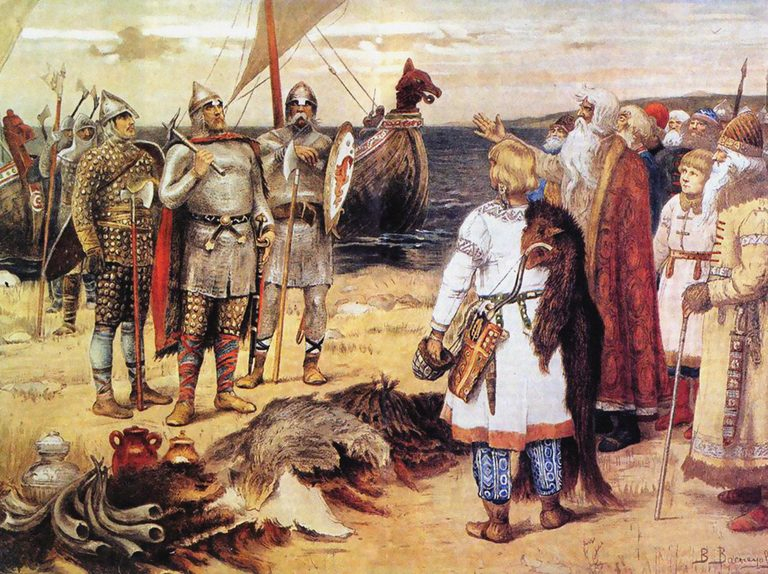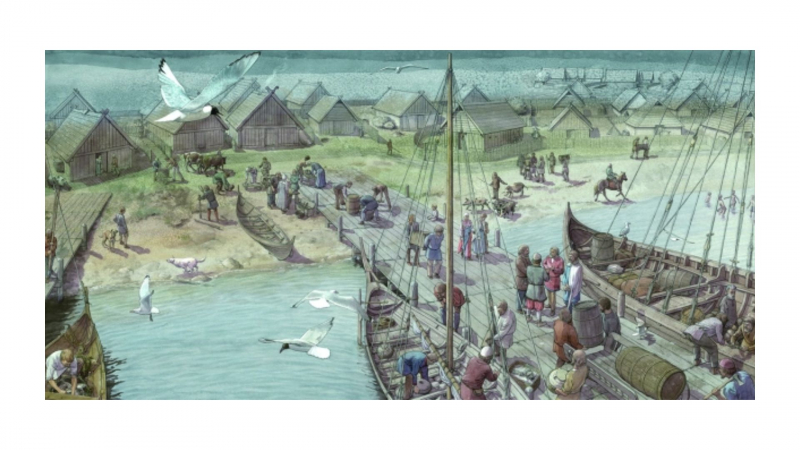Trade Opportunities
Trade opportunities is the next reason in the list of reasons why Vikings invaded England. One of the Norsemen's most important economic activities was trade. They were skilled shipbuilders with a firm grasp of aquatic transportation. The trees were stacked, fastened, and nailed together by the Heathen to make the ships. For their light-weight longships to float effectively, they filled the crevices between the planks with moss, wool, and animal hair. As a result of their width for transporting products and valuables, cargo vessels were utilized for commerce more frequently. To trade items made at home, they traveled throughout the shores of Europe.
Important trading products included walrus ivory, skins, furs, and whalebones. The same goes for petrified resin amber that was imported and cut into beads, brooches, and pendants. They exported honey, tin, wool, fish, and other items in return for silk, spices, wine, glass, and jewelry. Battle axes, swords, and chainmail created in Scandinavia by blacksmiths and expert armor manufacturers were traded. The Vikings may have had their eyes on England because it had significant trading centers where they could expand their trade.
The commercial lines between Europe and Asia may have been harmed 300 years earlier when the Roman Empire lost a large portion of its land. In addition, the spread of Islam, which started in the 600s, may have altered some trade routes, favoring the Silk Road and other land routes over maritime ones. The establishment of new trade channels in Arab countries and dominance of previously Frisian-controlled trading routes were both lucrative outcomes of the Viking expansion. The Franks had recently conveniently destroyed the Frisians, leaving their estates and trade routes open for appropriation.












